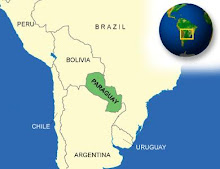Back in October, it was decided that all jóvenes ages 12 and up would now have to volunteer in the comedor to receive its benefits and services so as not to create a false sense of dependency in young adults (and because donors to the comedor were refusing to donate to misbehaving street teens without some greater cause). That first month, only two or three jóvenes decided to stick around and others decided it would be better to harass the kids from outside. The rules were outlined, we work- then we eat, and a volunteer role chart was hung to organize the volunteers. But it was not an easy task, kids were sneaking food out on stolen plates to older siblings and volunteers were frustrated with the inside/outside inequalities. Even the cooks and commission members were ready to break, and this rule was voted in by them! We had had enough! It was time to play the carrot and stick. Our carrot- the jóvenes that helped me as volunteers regularly would be permitted to participate in my Ahecha photography course. Out stick- nobody won't eat REALLY until the work is done. The adults finalized the plan, and this time we wouldn't be slack.
After one more month, at times sticky due to difficult teen attitudes, we had a strong team of youth volunteers that were once our thankless beneficiaries not only helping out in an orderly fashion but also learning skills in leadership, service, and teamwork. Those in the Ahecha class even had the opportunity to learn how to use the camera, some practice desperately needed writing poems and paragraphs which is rarely done at home or even in school, and received their first ever certificado (one girl said that she was going to frame it and put it on her wall- she had dropped out of school a couple of years ago to help out in the house and this might be one of the few she will ever have). Now the teens actually complete for jobs they want that day instead of complaining about them, and they have a lovely time to chat afterwards with the adult staff at their own private lunch table. It was tough on the adults to be a bit more fuerte (strong/firm) with our discipline, but the carrot and the stick seem to have worked wonders so far- and I hope we can keep making differences in the lives of these jóvenes for months and years to come.

